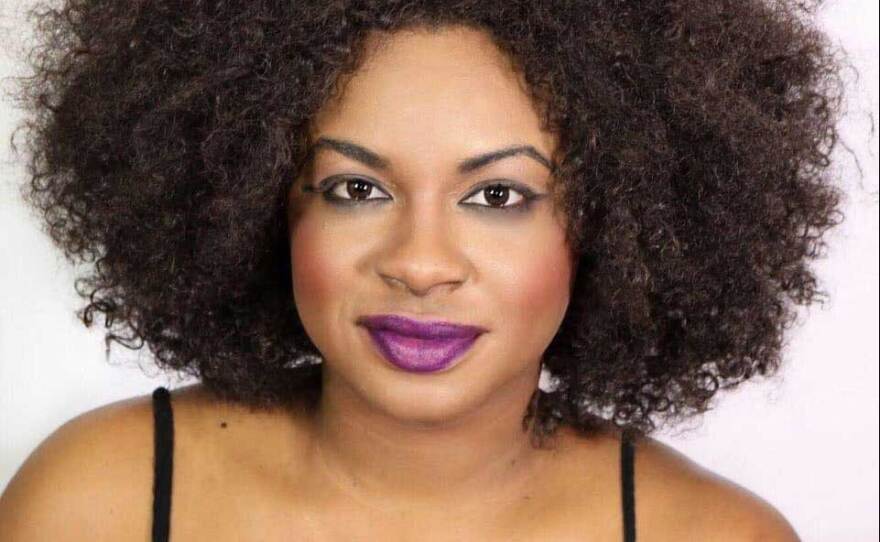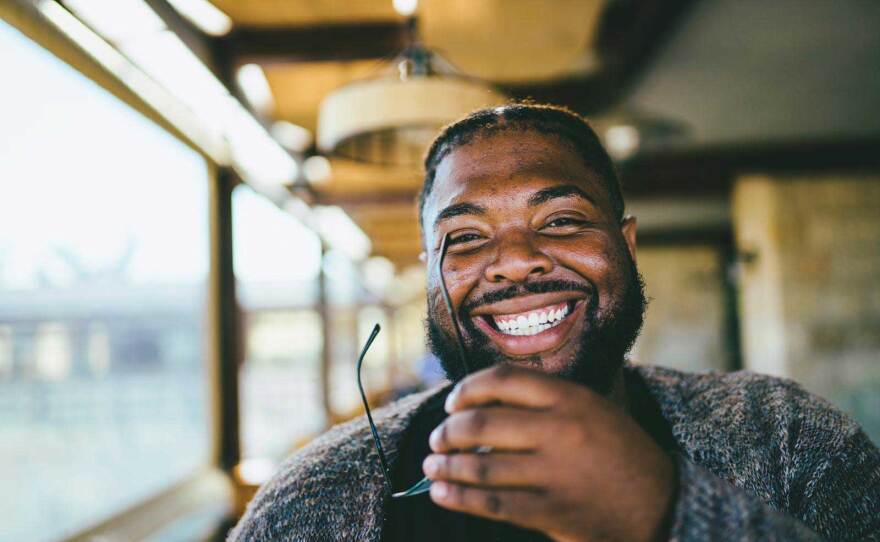This year marks The Old Globe's eighth Powers New Voices Festival, held each year to unveil new works of theater as well as offer a glimpse into the creative process of plays as they're developed.
Danielle Mages Amato, The Globe's literary manager and dramaturg, makes the case for honoring the canon while also constantly encouraging new works to be added to the theatrical roster.
"It is the most real-time art form that we have. We don't do it for people far away. We don't do it for people in the future. We do it for the group of people that are gathered at that time. We also make it in real time," Mages Amato said.
In that way, there's an element of what Mages Amato calls illegibility in historical works — some things are only meaningful in the moment the play is written or first performed.
"Works that are being written today are fully legible and fully understandable," she said. "This is what they’re baking right now. This is the bread to share with this community right now."
The Old Globe has turned a heavy focus during the pandemic to local playwriting and new play development. With the theater's engagement arm running virtual and accessible Community Voices classes, Living Room Play Workshops and more free, generative programs, there are plenty of ways to get in the door.
The Powers New Voices Festival aims to elevate that effort.
The four-day event kicks off on Thursday Jan. 21 with local emerging playwrights in the Celebrating Community Voices reading. It features short works written during the pandemic by local writers in the Community Voices and coLAB programs, including Queen Kandi Cole, KishaLynn Moore Elliott, Jonathan Hammond and Thelma Virata de Castro.
On Friday, The Globe will launch a new podcast, "Cocktails with the Canon," followed by a brand new translation and adaptation of Spanish playwright Lope de Vega's play "Fuente Ovejuna," written in the early 1600s about a tyrant and an uprising in the 1400s— well poised for a 2021 take. William S. Gregory and Daniel Jáquez adapted the work, which is still in development, in collaboration with the Consulate of Mexico, TuYo Theatre and The Old Globe.

Saturday shines the spotlight on the San Diego Black Artists Collective, beginning with a special panel focusing on art and activism, and then a SDBAC-curated showcase of readings. The evening will include five new works by local Black women playwrights: Tanika Baptiste, Dea Hurston, Joy Yvonne Jones, Tamara McMillian and Milena (Sellers) Phillips.
"We're really allowing Black women to take up space, to say, 'We are here and this is how we want to talk, this is what we want to share.' And I think creating a space for that to happen not only reckons with what social and restorative justice in the American theater looks like right now, but I think, specifically for The Old Globe, gives us access to not only reckoning with our past, but acknowledging that we're making space for our future," said Lamar Perry, the Globe's artistic associate.
SDBAC will round out the evening with monologue adaptations of photographer Rich Soublet II's "Black Presence" portraiture and interviews of San Diego Black artists.
For Perry, recognizing value and excellence in works by Black artists created with systemically restricted access to resources, education and other privileges is an immediate and pressing need.
"It takes a significant level of cognitive dissonance to be both Black and working in the American theater right now — to love an art form that has not traditionally loved you back," said Perry. "It’s a radical act for Black people to be free and creating work."

The festival will culminate with a panel of all the festival playwrights, plus a final performance of a Globe-commissioned new work by José Cruz González called "Under a Baseball Sky." The work, directed by James Vásquez, is a story of the importance of baseball in the Mexican American community (the playwright drew upon Logan Heights for inspiration) and its themes of isolation and a longing for community fit this current moment.
For an event that — in a normal year — involves a lot of breaking bread between playwrights, actors, theater professionals and audiences, Mages Amato said that this virtual structure is not ideal, but still significant. She said it's also shaping up to be one of their best-attended yet, with hundreds of families already registered for programs.
"My initial instinct was to postpone it, to not try to do it in this format, to wait to do it in a format that honors all its intentions. We spent a lot of time over these last 10 months postponing things, not knowing … Finally we just said, we just need to do it," she said.
For The Globe, the festival is more than a celebration of local theater or modern playwriting — it shows how a 2,500-year-old, historically dense art form can still be so immediate and evolving.
"It is an acknowledgement that we need to continue to push our audience and the theatrical community to make space," said Perry. "There's going to be a time when the doors are open, tickets sold, business as usual. But business as usual has been so detrimental to some people for so long."








